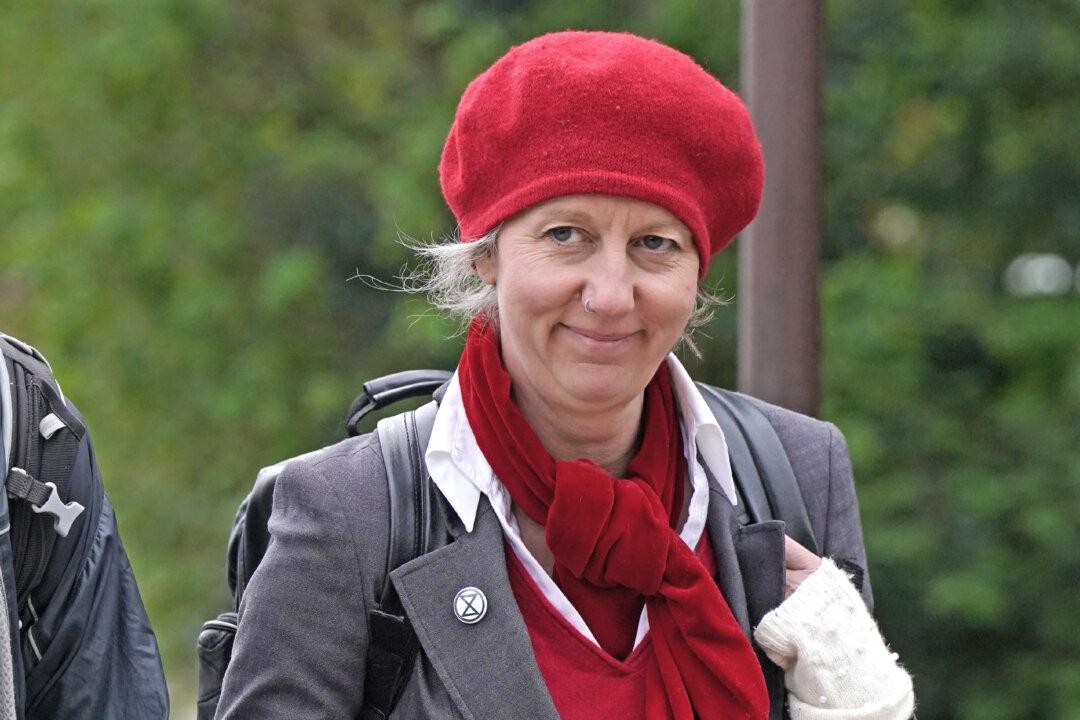A London court has delayed the trial of a prominent climate activist, saying it can’t go ahead until legal questions that arose from the statue-toppling case in Bristol are resolved.
Gail Bradbrook, the co-founder of the climate activist group Extinction Rebellion, appeared at Isleworth Crown Court on Tuesday accused of causing £27,500 ($35,746) in damage to the Department for Transport building in Westminster by smashing a plate-glass window during a protest in London on Oct. 15, 2019.





